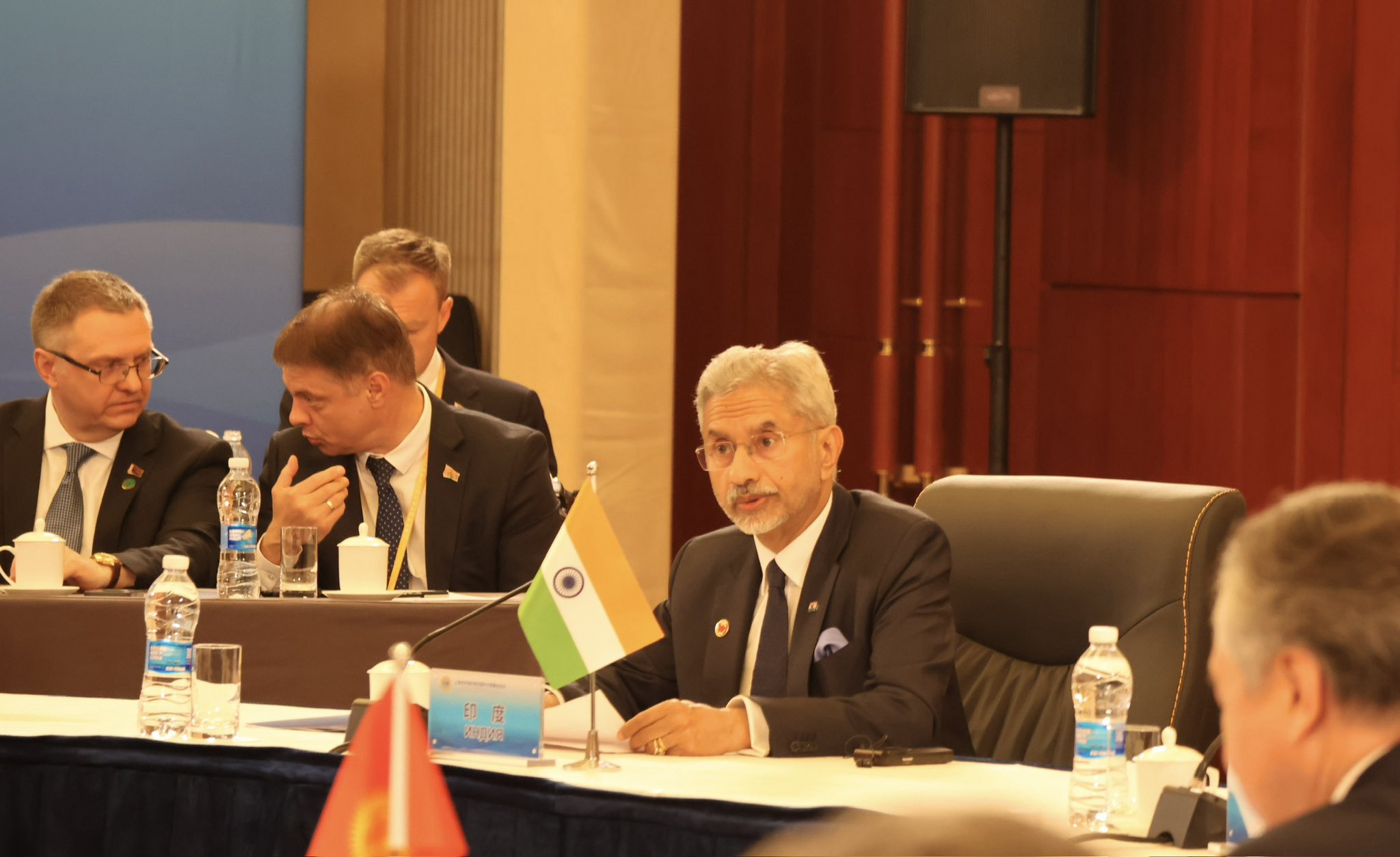GEOPOLITICAL REALIGNMENT: India's EAM Jaishankar Warns of Global Disorder, Terrorism Threats and Calls for Uncompromising Cooperation
India’s External Affairs Minister Dr. S. Jaishankar used the Shanghai Cooperation Organization (SCO) Council of Foreign Ministers meeting in Tianjin to deliver a strong message on global instability, terrorism, and the urgent need for regional cooperation grounded in respect for sovereignty and mutual trust.
Speaking to counterparts from across Central Asia, China, Russia, Pakistan, and other member states, Jaishankar outlined India’s view of a world increasingly shaped by disruption, economic volatility, and coercive geopolitics.
 |
| Image Source: MEA/FM on X |
“We meet at a time of considerable disorder in the international system,” Jaishankar said, citing a visible uptick in armed conflicts, economic instability, and strategic competition in recent years. “The challenge before us is to stabilize the global order, de-risk various dimensions, and address longstanding challenges that threaten our collective interests.”
At the center of Jaishankar’s remarks was a pointed reminder of SCO’s original purpose: combating the “three evils” — terrorism, separatism, and extremism.
He invoked the recent April 22 terrorist attack in Pahalgam, Jammu and Kashmir, which targeted a tourist convoy and killed multiple civilians.
Describing the attack as a deliberate attempt to undermine the region’s tourism economy and incite religious division, Jaishankar noted that India had taken decisive steps to hold the perpetrators accountable.
The UN Security Council, of which several SCO members are part, had condemned the act unequivocally, emphasizing accountability — a message Jaishankar said SCO must embrace without compromise.
“To remain true to its founding objectives, the SCO must take an uncompromising position on terrorism,” he declared.
The minister also used the forum to highlight India’s constructive role within the SCO framework. From launching initiatives on startups and innovation to promoting traditional medicine and digital public infrastructure, Jaishankar said India has led by example — and will continue to support projects that serve the collective good.
However, he stressed that cooperation must be rooted in mutual respect and sovereign equality, without compromising territorial integrity — a veiled but unmistakable message to nations violating these principles.
Economic cooperation was another focal point. Jaishankar warned that the lack of assured transit across the SCO region is hampering meaningful trade and investment.
He pressed for the promotion of the International North South Transport Corridor (INSTC), which India sees as critical to unlocking the region’s connectivity potential.
“Without reliable transit, our rhetoric of economic cooperation rings hollow,” he cautioned.
On Afghanistan, Jaishankar reiterated India’s long-standing commitment to the Afghan people and stressed the need for SCO countries to step up humanitarian and development assistance to ensure long-term regional stability.
Afghanistan has been a recurring subject on SCO’s agenda, and Jaishankar’s remarks sought to ensure it remains one of shared responsibility.
Looking beyond immediate challenges, Jaishankar framed the SCO’s future role in a changing world order. As global power becomes increasingly multipolar, he said, institutions like the SCO will be pivotal in shaping world affairs — but only if they build inclusive, consensus-driven agendas.
“Our ability to contribute to the shaping of world affairs will naturally depend on how well we come together on a shared agenda,” he noted.
Before the ministerial session, Jaishankar also met Chinese Foreign Minister Wang Yi, where the two reviewed the state of bilateral ties. He also called on Chinese Vice President Han Zheng and met Liu Jianchao, head of the Communist Party’s international department.
Jaishankar's message in Tianjin was that the time for ambiguity is over. For SCO to be relevant and effective, it must show unity in action — especially against terrorism — and match rhetoric with policy in areas like trade and connectivity.
With tensions rising across multiple fronts, India’s EAM has staked out a vision where shared security and mutual respect are prerequisites for collective prosperity.
